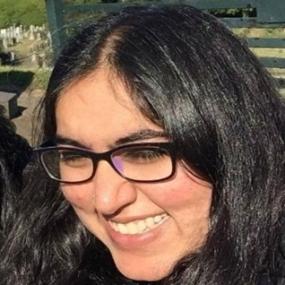Being a Dual EM & ICM trainee…My Experience

Mishti is a dual Emergency Medicine and Intensive Care Medicine trainee based in Yorkshire and Humber. She is the dual trainee lead for Yorkshire Society of Emergency Medicine, the lead for the Journal Article reviews team of the Cailtec initiative and one of the national trainee representatives on the Women In Intensive Care Medicine, sub-committee of the Faculty of Intensive Care Medicine. Her passions in life are travelling, food, reading, singing karaoke (badly!) and attending music concerts.
Night 1… 3 AM:
I am standing in one of the resuscitation bays of the emergency department holding a patient’s airway open while pre-oxygenating them, as we are running through the RSI checklist…
3:30 AM The patient is now on our ICU and the nurses are joking about how they will be spending the next hour sorting out the jumble of wires I have gifted them. How does everything get so tangled during transfer up 2 floors?
4 AM I have just reviewed a patient, inserted a vascath and started him on CVVHD.
4:30 AM The massive haemorrhage bleep is going off.
5 AM There is a patient with an extradural haemorrhage in ED who needs urgent transfer to the neurosurgical centre.
7 AM We have been unable to resuscitate a 29 year old, we are debriefing and there are tears.
8 AM There are donuts and fresh smell of coffee in the coffee room!
Night 2
3 AM I talk to a patient as I relocate her shoulder.
3:15 AM I am called to senior review a 2 year old with croup.
3:40 AM We have 5 minutes before the trauma call comes in…. The red phone is ringing and there is a cardiac arrest expected in 10 minutes… The patient with COPD who has been in the department for 10 hours has just been reviewed and might need NIV… Could I take 5 minutes and update the family of the 71 year old who passed away a little while ago? …Also, there is a difficult cannula to do so a patient can have intravenous antibiotics… One of the nurses has brought in cake, a piece is saved for me in the fridge for when I take a break…
From the above, it is probably clear that I am a dual Emergency Medicine and Intensive Care Medicine trainee. It is probably also clear that I love cake and coffee! The first thing I want to say about being a dual EM/ICM trainee is that I absolutely love my job and have had very positive experiences in my training so far. Do not get me wrong, there are some obvious cons of dual training; the training programme is long; there are more exams to do, it is rather frustrating to repeatedly try to explain what level of training you are at, there are two portfolios so more staring at (and swearing at) computer screens. There are some very hard, draining, and challenging shifts (see above) but, I think I can safely speak for those of us who choose to do Intensive Care Medicine, at the risk of sounding cringeworthy, it is the best job in the world!
It should come as no surprise to anyone that most intensivists in the UK are dual anaesthetic/intensive care consultants, which means that for the dual trainees such as myself, there are some unexpected challenges which I think it’s important to discuss realistically. There can be a level of unease whenever you start on a unit where you have not worked before, as no one is quite sure of your level of experience (“airway skills” might often come up). If you are training in a region that does not have a lot of dual consultants from your other parent speciality, it can cause some anxiety as to whether there would be an actual job at the end of the long training programme. There are doctors at all levels who might not appreciate your career choices and are very vocal about it which, at the very least, can be an annoyance. There are also practicalities about different ARCP panels and portfolios, multiple rotations that might feel a bit disjointed and less than full time training can be all the more challenging to organise. I am absolutely not saying that every dual, non-anaesthetic trainee has negative experiences. I am however, saying that at some point in your training you are sure to have some degree of doubt or question your career choices because, let’s face it, the path well-trodden is at least well understood!
Is there then a slight bias that exists then within the Intensive Care workforce? Perhaps, but most trainees and Intensive Care consultants I have met are aware of, and excited about, the mix of technical and non-technical skills that colleagues from other specialities bring to the table. There are also dedicated staff both at FICM, and the regional level including college tutors and TPDs who are working tirelessly to make the ICM training programme more accessible. I am often asked by very keen junior, non-anaesthetic trainees wanting to apply to Intensive Care Medicine whether they should just switch to anaesthetics and do training the more “accepted” way. To them I give the sound advice someone gave me at the very start of my medical career: Do not let the length of training or some perceived challenges put you off from what you want to do! You will be a consultant for most of your life and will end up spending a lot time with your work family so you might as well pick something that you actually like doing!
